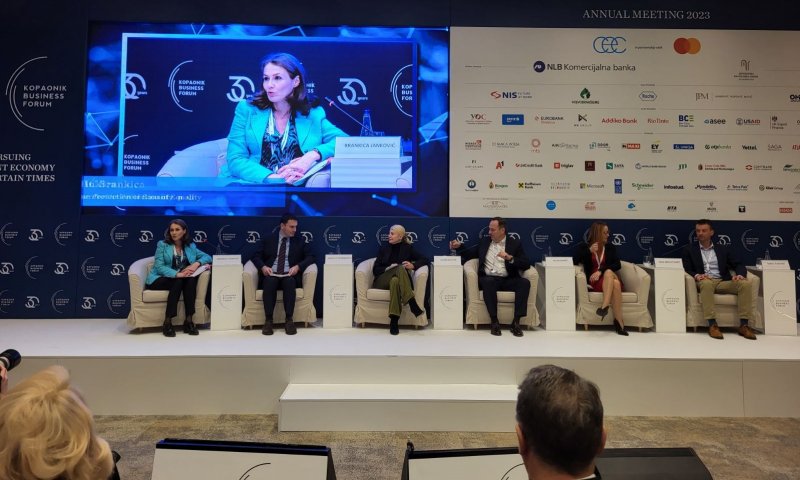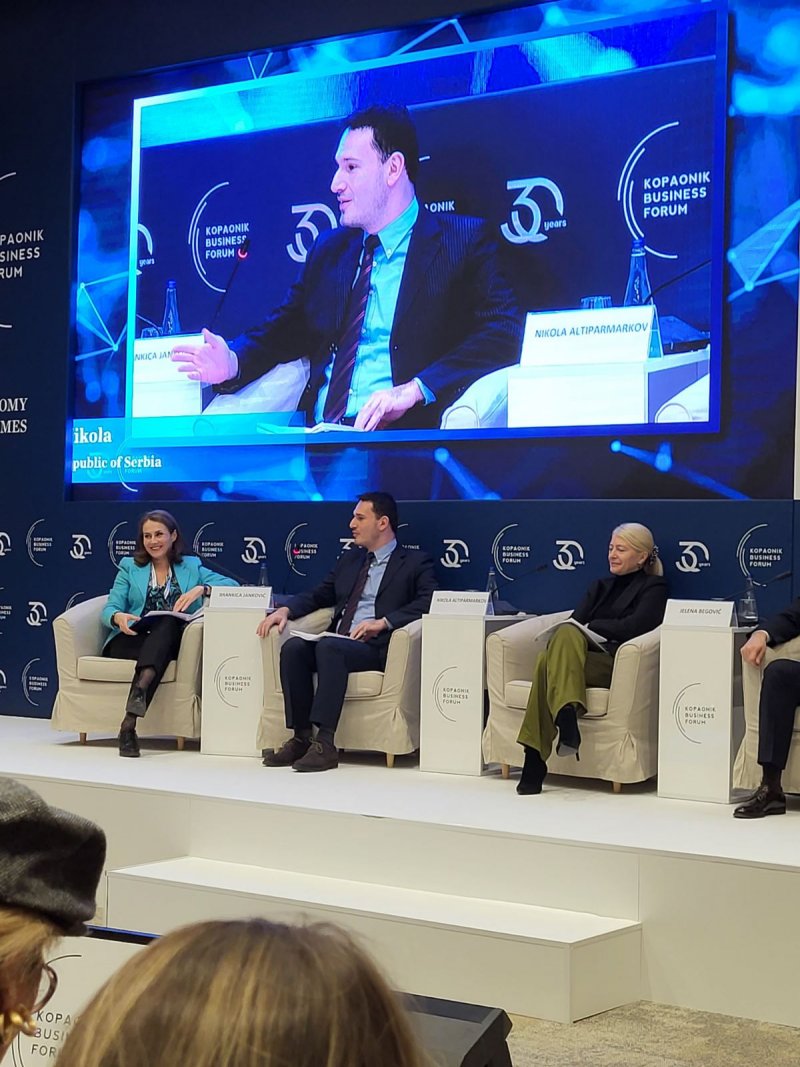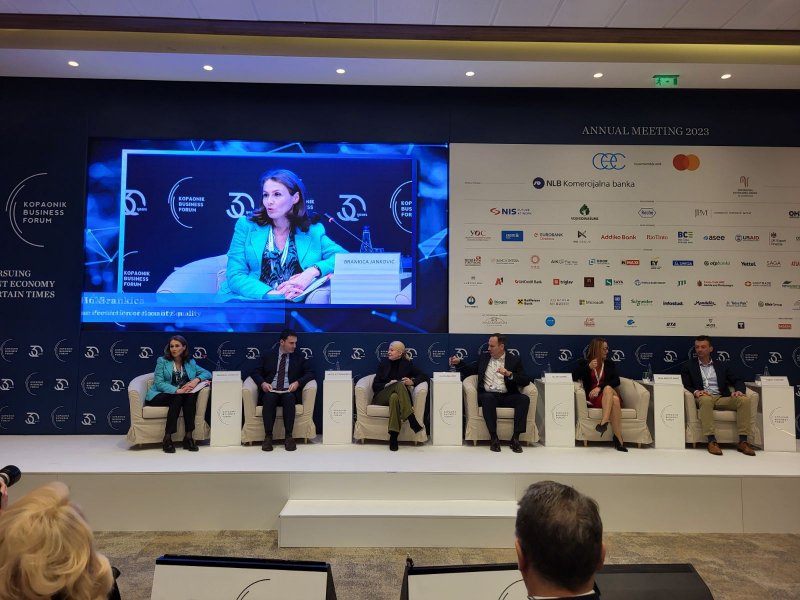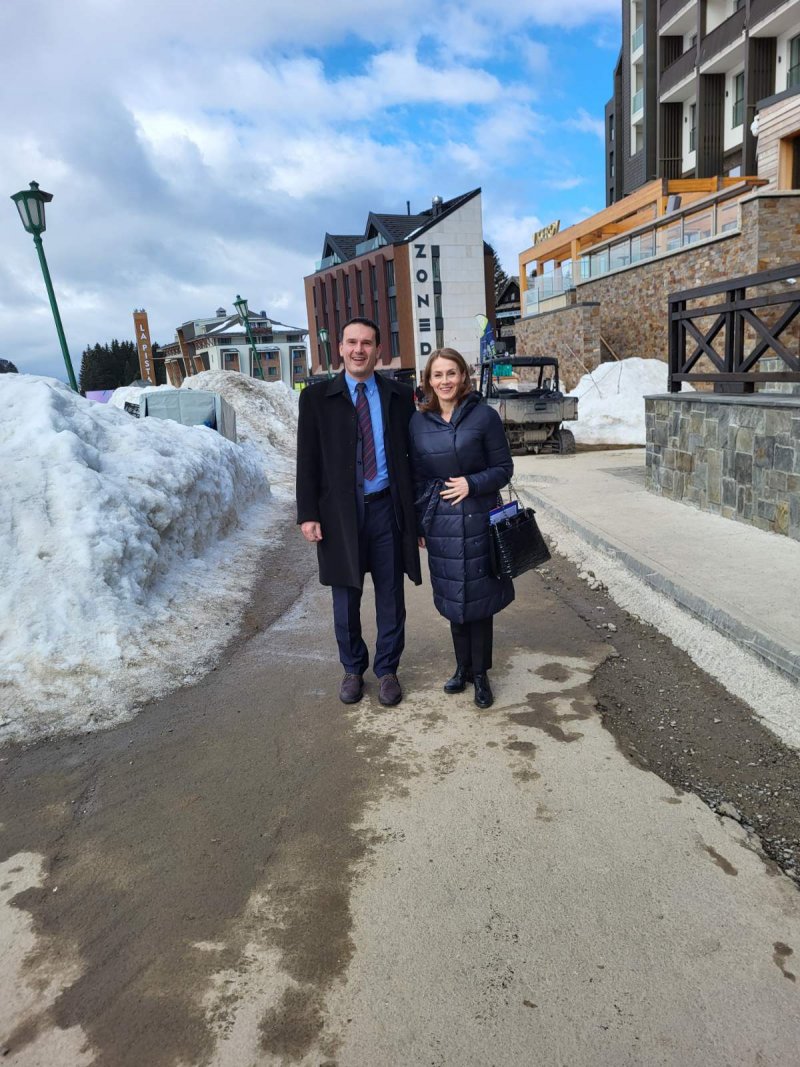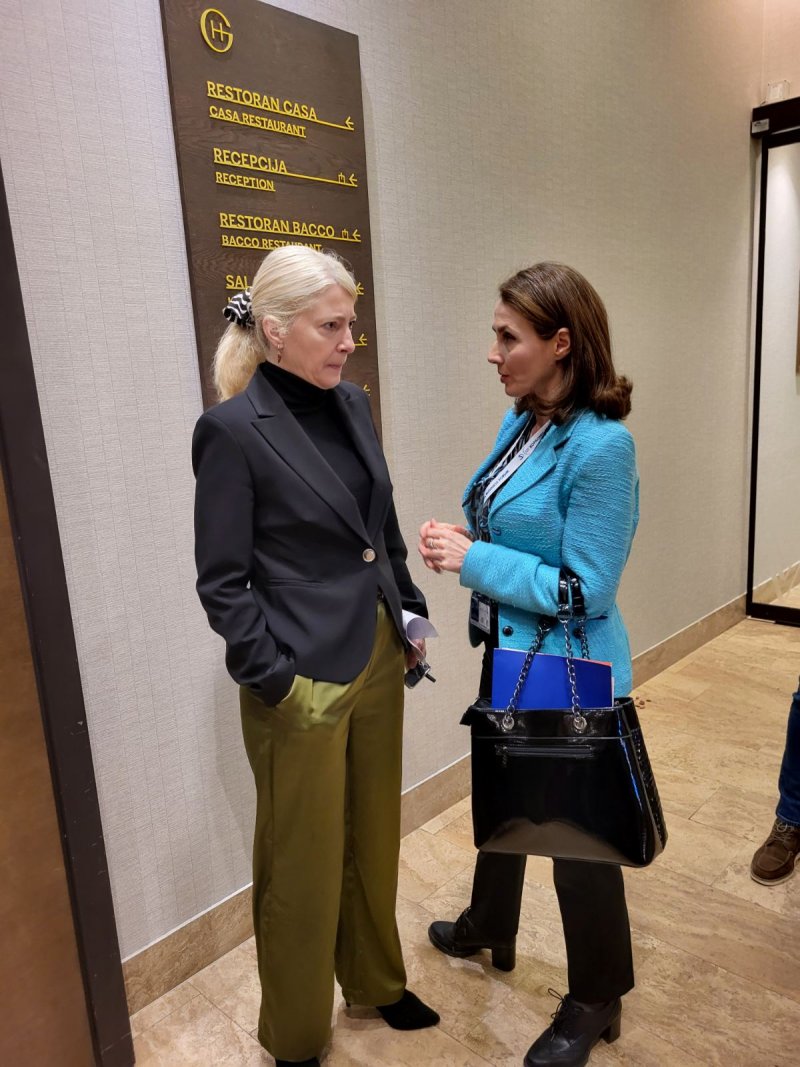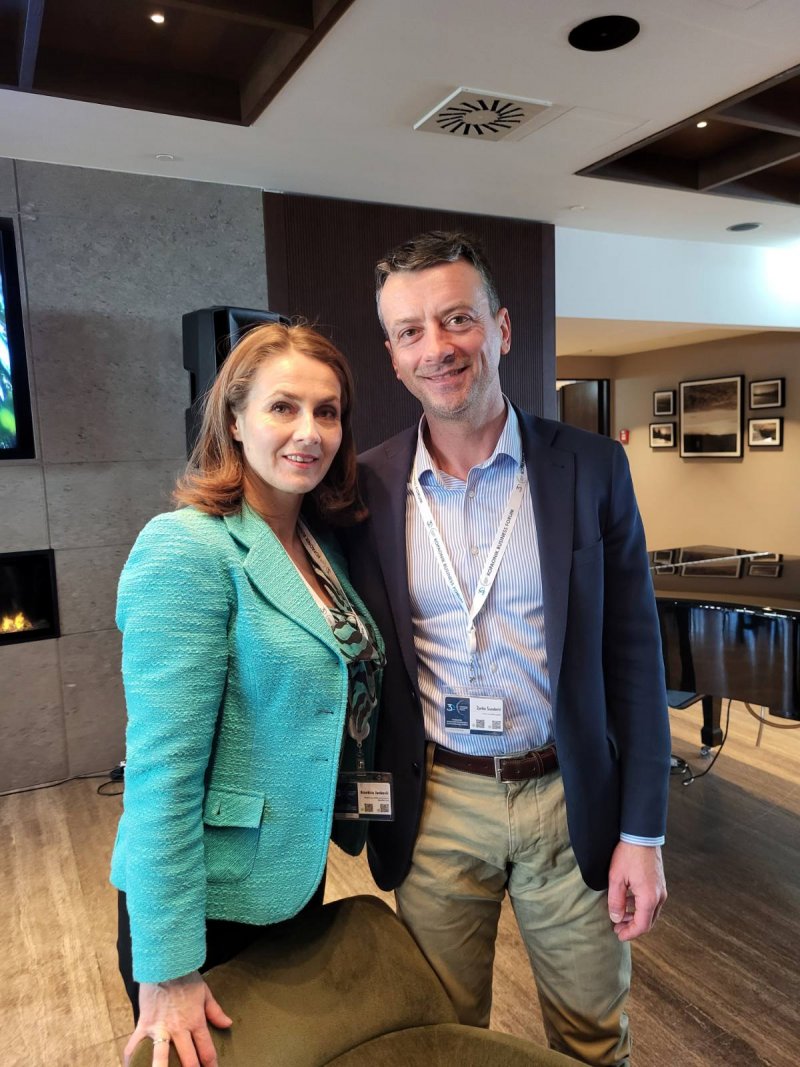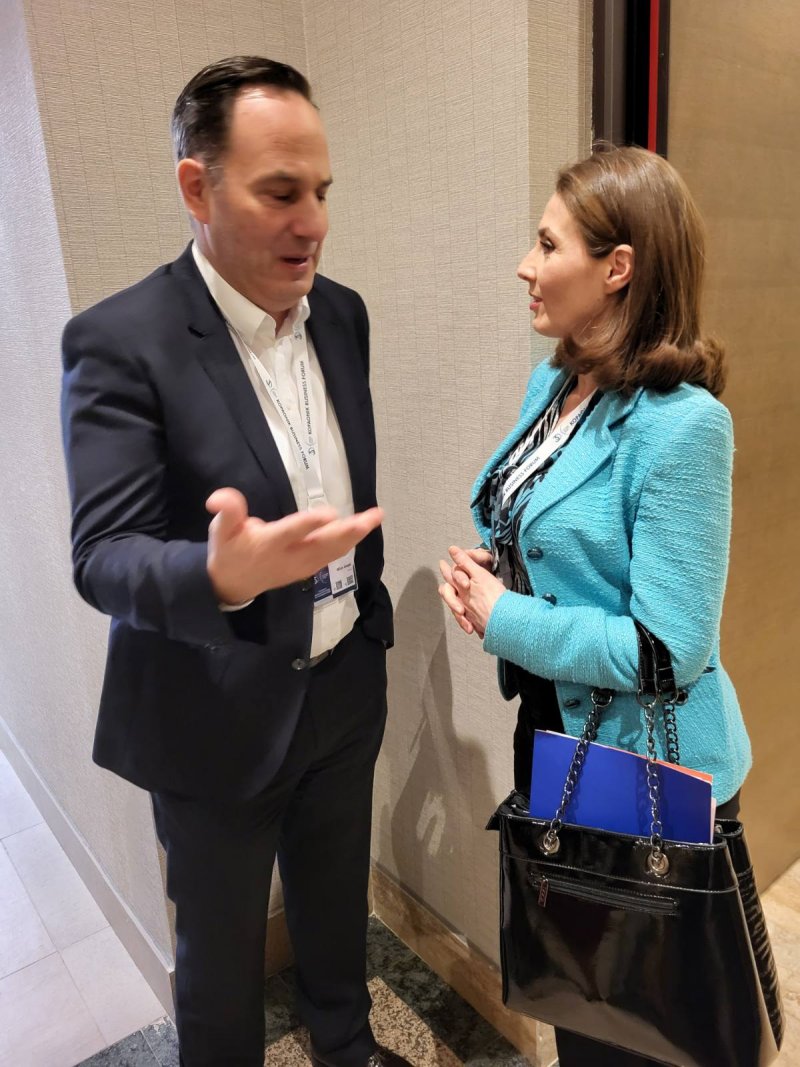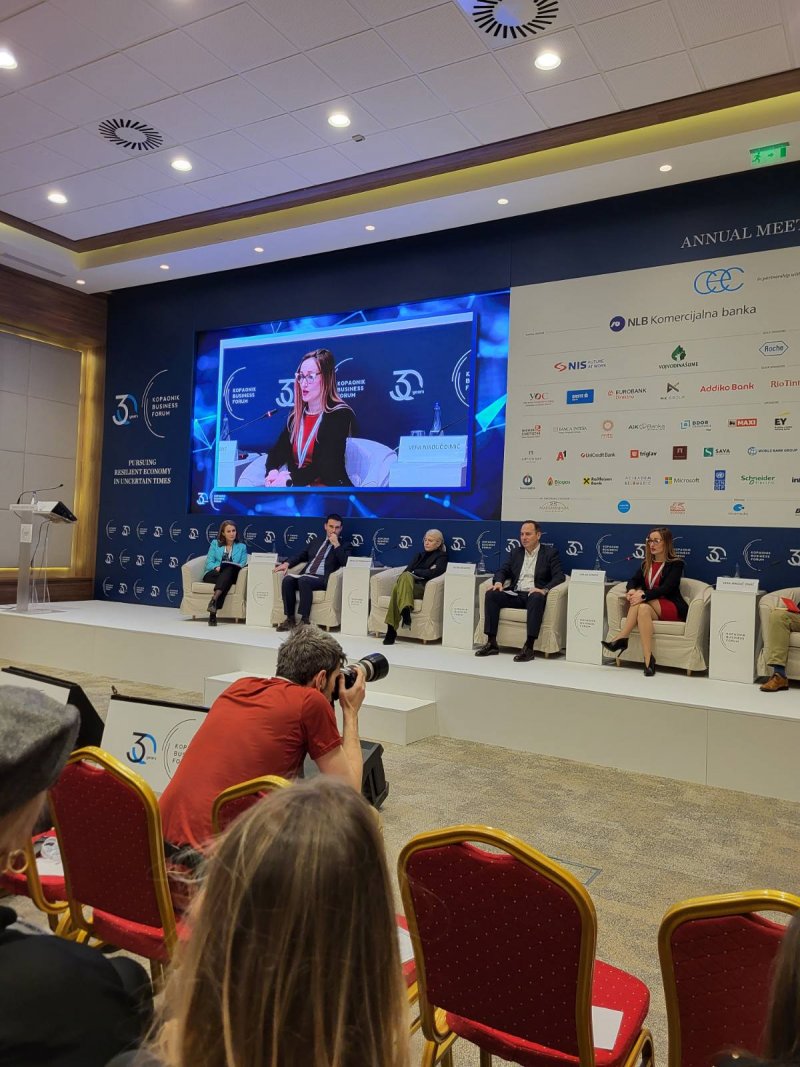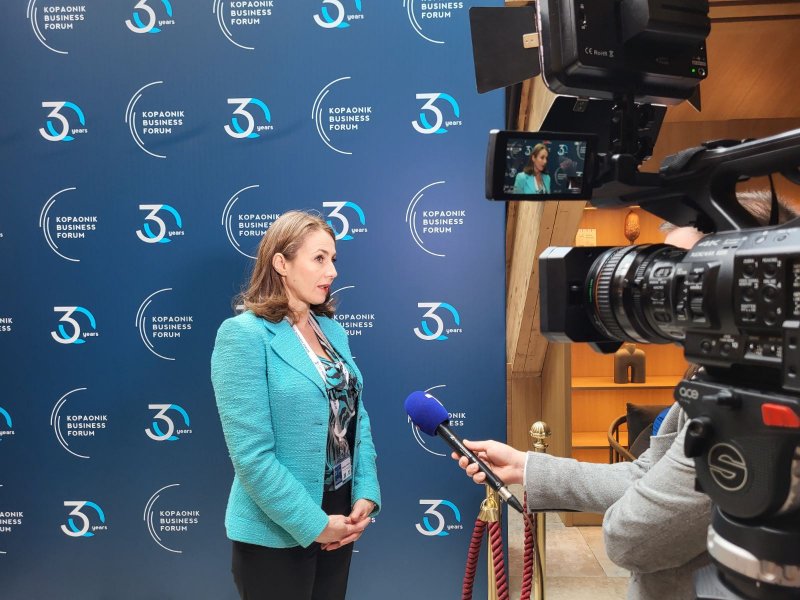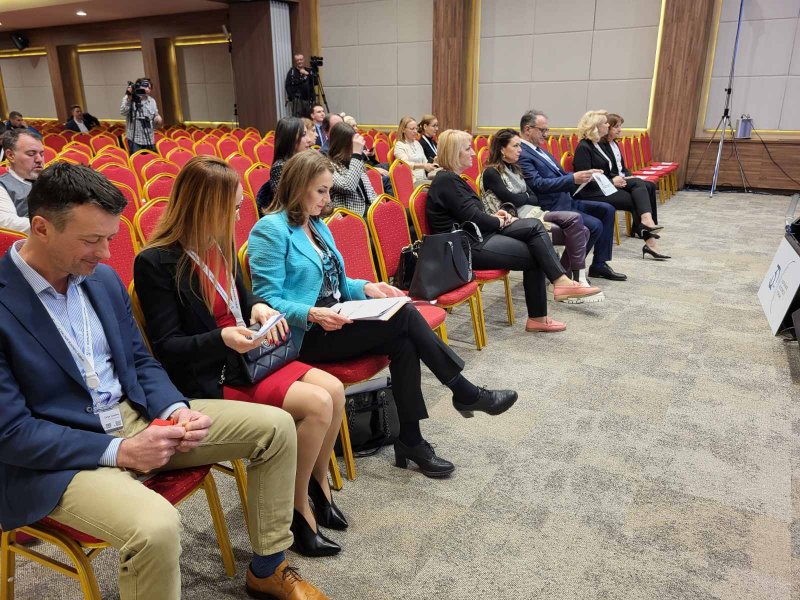We live in a time without precedence, which confronts us with numerous challenges through a series of crises and changes that affect all of us, but mostly the citizens already in a disadvantageous position and whose maneuverability is the most limited. They can hardly cope alone, and that’s why the key to the solution is in solidarity, said Commissioner for the Protection of Equality, Brankica Janković, as the keynote speaker at the panel SOCIAL COHESION IN THE AGE OF CRISIS – RESISTANT IN SOLIDARITY OR RESISTANT TO SOLIDARITY at the Kopaonik Business Forum.
An increase in vulnerability, as well as a decrease in resilience to change among certain social groups or entire populations in some countries, is evident, creating additional risks from local and global crisis spillover effects, including more profound disruptions in supply chains, increases in extreme poverty and the potential for conflict, the Commissioner said.
Panel participants Dr. Jelena Begović, Minister of Science, Technological Development and Innovation, Milan Gospić, Director of Microsoft Serbia, Vera Nikolić Dimić from the American Chamber of Commerce, Nikola Altiparmarkov, member of the Fiscal Council, and Žarko Šunderić from the Center for Social Policy agreed that inclusive innovations today are more important than ever because globalization and digitization fundamentally change all societies. The promotion of contacts and understanding between different population groups and the provision of equal access to products and services were mentioned as some of the effective measures for strengthening social cohesion.
An increasing number of management teams recognize the importance and urgency of holding discussions within their organizations and taking actions aimed at solidarity. A characteristic of a leader must be empathy. In the age of the covid pandemic, we learned how to be in solidarity, we coped well, but the system must not rely on coping, it must be the standard. intergenerational solidarity is the basis of our future and mental stability, panel participants concluded.
